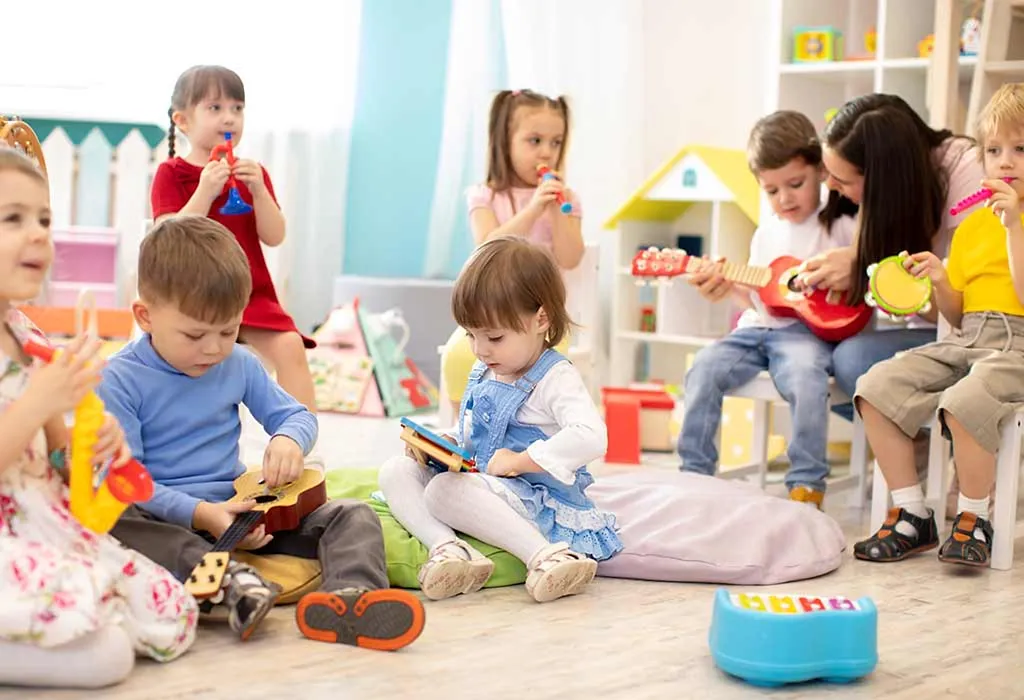Choosing childcare for your little one can feel like a jungle gym – full of options and a little intimidating. That’s where these valuable parenting guides come in! Let’s explore daycare and preschool to help you make the best childcare choice. Dive into how they cater to different needs and stages of development, making it easier to find the perfect fit for your precious child.
Understanding Your Child’s Needs
Before diving into the specifics of daycare and preschool, it’s crucial to consider your child’s individual needs. Age is a significant factor. Daycares typically cater to a broader age range, from infants to kindergartners, while preschools generally focus on children aged three to five, preparing them for kindergarten.
Think about your child’s personality and developmental stage. Does your child thrive in a structured learning environment, or do they benefit more from free play and exploration? Consider your own needs as well. Do you require full-time care year-round, or are you looking for a part-time option?
Daycare: A Nurturing Environment for All Ages
Daycare centres prioritise providing a safe and nurturing environment for children of various ages. Their primary focus is on basic needs like supervision, meals, and nap time. Many daycares also incorporate playtime and age-appropriate activities that foster social, emotional, and physical development.
Benefits of Daycare:
Flexibility: Daycares often offer flexible scheduling options, including full-time, part-time, and drop-in care. This caters to parents with diverse work schedules or those who require occasional childcare support.
Socialisation: Daycare provides opportunities for children to interact with peers of different ages, fostering social development and communication skills.
Routine and Structure: Daycares establish predictable routines that ensure children feel safe and secure. This includes regular mealtimes, nap times, and playtime schedules.
Basic Learning: While not the main emphasis, many daycares incorporate simple learning activities like singing, storytelling, and creative play. This helps stimulate young minds and introduce basic concepts.
Year-Round Care: Daycares typically operate year-round, offering consistent care even on holidays and school breaks. This provides parents with peace of mind and uninterrupted work schedules.
Considerations for Daycare:
Focus on Care: The primary focus of daycare is on providing care and supervision, with a lesser emphasis on structured learning compared to preschools.
Large Age Groups: Daycares may have mixed-age classrooms, which can be overwhelming for younger children who might benefit more from interacting with similar-aged peers.
Staff Qualifications: While daycare staff must meet basic licensing requirements, qualifications can vary. It’s important to research staff experience and training in early childhood development.
Preschool: A Stepping Stone to Kindergarten
Preschools offer a more academic-focused environment designed to prepare children for kindergarten. They typically follow a curriculum that introduces early literacy, math, and science concepts. Preschools also emphasise social and emotional development through structured activities and group play.
Benefits of Preschool:
Academic Preparation: Preschools provide a structured learning environment that introduces basic academic concepts like letters, numbers, shapes, and colours. This prepares children for the more rigorous academics encountered in kindergarten.
Social and Emotional Development: Preschools promote social and emotional skills through group activities, circle time, and role-playing. Children learn to share, take turns, and express their emotions in healthy ways.
Prepares for Kindergarten: Preschools introduce children to a classroom setting, including routines, expectations, and teacher-led instruction. This helps them feel more comfortable and confident when entering kindergarten.
Focus on Early Learning: Preschools prioritise early childhood development by incorporating a variety of engaging activities like storytelling, singing, arts and crafts, and exploration.
Qualified Teachers: Preschool teachers often hold degrees or specialised training in early childhood education, ensuring a focus on age-appropriate learning experiences.
Considerations for Preschool:
Schedule: Preschool programs usually follow a more rigid schedule than daycare, with set drop-off and pick-up times. Options may include half-day or full-day programs.
Cost: Preschools may be more expensive than daycare due to their focus on curriculum and potentially higher staff qualifications.
Limited Availability: High-quality preschool programs can have waiting lists, so it’s important to research and apply early.
The Perfect Fit: Finding the Right Program
Ultimately, the choice between daycare and preschool depends on your child’s individual needs and your family’s circumstances. Here are some additional factors to consider:
Visit and Observe: Schedule tours of daycare centres and preschools. Observe the classroom environment, teacher-to-child ratios, and the types of activities offered. Pay attention to how children interact and whether the environment feels stimulating and nurturing for your child.
Talk to Teachers and Staff: Discuss your child’s personality, developmental stage, and any specific needs you may have. Ask about the program’s philosophy, curriculum, and approach to discipline.
Consider Your Budget: Determine your childcare budget and compare the costs of different programs. Some employers may offer childcare subsidies, so factor that possibility into your decision.
Think Long-Term: If your child is nearing kindergarten age, a preschool program might be a better fit to prepare them for the transition. However, if your child is younger and you require flexible care options, daycare may be the more suitable choice.
Daycare and preschool both provide valuable services for children. By understanding the key differences and your child’s unique needs, you can make an informed decision that fosters their development and well-being. Remember, the most important factor is choosing a program that feels safe, nurturing, and stimulating for your little one.






